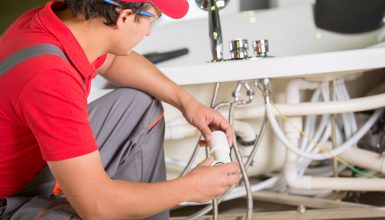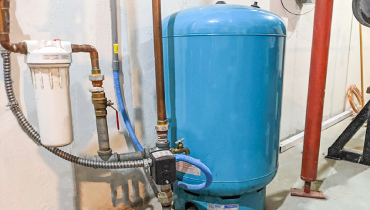The writer is making several great pointers regarding 10 Reasons for Low Water Pressure in Your House overall in this great article just below.

Low tide stress in your house can be an irritating trouble, affecting everything from bathing to cleaning meals. If you're experiencing weak water flow, there are several feasible causes and solutions to explore. In this guide, we'll discuss typical reasons for low tide stress and useful actions to address the issue efficiently.
Introduction to Low Water Pressure
Low tide stress happens when the circulation of water from your taps, showers, and other components is weaker than typical. This can make day-to-day tasks much more tough and much less effective. Comprehending the sources of low tide stress is critical to finding the right remedy.
Typical Sources Of Low Water Stress
Faulty Stress Regulators
Stress regulatory authorities are in charge of maintaining consistent water pressure in your home. If they malfunction, it can lead to low tide pressure or uneven circulation throughout your house.
Metropolitan Water System Issues
Occasionally, the issue exists outside your home. Community water system issues, such as main line leakages or upkeep work, can momentarily lower water stress in your location.
Pipeline Obstructions
Gradually, pipes can come to be blocked with natural resource, sediment, or particles, limiting the flow of water. This is a typical concern in older homes with galvanized steel pipes.
Corrosion
Corrosion within pipes can result in leaks and minimized water stress. Rust build-up can tighten water flow, especially in maturing plumbing systems.
Just How to Identify Low Tide Stress
Inspecting Pipes
Examine noticeable pipes for indicators of leakages, deterioration, or obstructions. Take notice of any unusual sounds, such as banging or rattling pipes, which can suggest concerns within the plumbing system.
Consulting with a Plumber
If you're incapable to pinpoint the cause of low water stress, think about working with an expert plumber to perform a complete assessment. They can determine underlying concerns and advise suitable solutions.
Checking Faucets and Components
Beginning by examining the water pressure at various taps and components throughout your home. If the problem is isolated to certain areas, it may suggest local troubles.
DIY Solutions to Take Care Of Low Water Stress
Flushing Hot Water Heater
Sediment accumulation in the water heater can restrict flow and lower performance. Purging the container periodically helps get rid of sediment and maintain ideal efficiency.
Inspecting Stress Regulator
Make certain that the pressure regulator is working appropriately. Adjusting or replacing the regulatory authority can assist restore appropriate water stress throughout your home.
Cleansing Aerators and Showerheads
Natural resources can collect in aerators and showerheads, lowering water flow. Get rid of and clean up these components regularly to enhance water pressure.
Clearing Up Clogs in Pipeline
For small blockages, try making use of a plumbing snake or chemical drainpipe cleaner to clear obstructions in pipes. Beware when making use of chemicals and comply with security standards.
When to Call a Professional Plumber
If do it yourself initiatives fall short to solve the concern or if you think substantial plumbing troubles, it's best to seek aid from a certified plumber. They have the experience and devices to deal with complex concerns securely and properly.
Preventive Measures to Maintain Water Pressure
Setting Up a Stress Booster
Think about installing a stress booster pump to boost water stress in locations with constantly low circulation. This can be especially helpful for multi-story homes or properties with high-demand fixtures.
Monitoring Water Use
Be mindful of water usage routines and stay clear of overtaxing the plumbing system. Simple changes, such as astonishing showers and laundry tons, can help preserve sufficient water stress.
Normal Upkeep
Set up routine maintenance for your plumbing system to prevent issues such as deterioration, leakages, and blockages. Dealing with minor problems early can assist prevent even more considerable fixings later on.
Conclusion
Taking care of low water stress can be aggravating, however recognizing the underlying reasons and executing ideal options can restore optimum circulation throughout your home. Whether it's cleaning up aerators, checking pipelines, or seeking advice from a plumber, taking aggressive actions can guarantee a constant supply of water for your everyday requirements.
FOUR WAYS TO FIX LOW WATER PRESSURE NOW
Turning on a shower or faucet only to find the water comes out in a sad, slow drizzle is never a good feeling. How exactly are you supposed to wash a pan or take a quick shower when it takes 10 minutes just to rinse off a little soap? The good news is that when your water pressure is bad, there's always a cause: typically one that can be easily fixed. Here are some of the most common causes of low pressure and what you can do to fix the issue:
DEBRIS AND MINERAL DEPOSIT BUILDUPS
If you notice low water pressure from just one or two of the fixtures in your house, the problem likely has to do with debris buildup. Water is full of minerals and other debris, all of which can accumulate in your pipes and on your fixtures. This can cause a blockage that affects how much water flows through. To fix this, try filling a small plastic bag with white vinegar, and use a rubber band to hang it around your showerhead or faucet. Let the head of the fixture soak for a few hours, and the vinegar should loosen the deposits.
WATER LEAKS
Leaks are another common cause of low water pressure. If water is flowing out of your plumbing through a hole or crack before it can reach your fixture, the pressure coming out of the faucet or showerhead will be lower. A plumbing professional is your best bet for finding and repairing a leak in your water supply pipes.
Leaks are another common cause of low water pressure. If water is flowing out of your plumbing through a hole or crack before it can reach your fixture, the pressure coming out of the faucet or showerhead will be lower. A plumbing professional is your best bet for finding and repairing a leak in your water supply pipes.
A VALVE ISSUE
If you have low water pressure throughout your home, check your main shut-off valve to make sure it's completely open. You may also want to see if there's a pressure-reducing valve installed. If there is, have a plumber help you adjust the settings to get the pressure you're looking for.
OTHERS USING WATER
Believe it or not, your low water pressure could be caused by your neighbors. If you notice low pressure at certain times of day, it may be because you and the people living next to you have similar schedules - when everyone is showering at the same time, the pressure will be lower in every home. Low pressure throughout the neighborhood may also be caused by an issue with your municipal water supply. If that's the case, call the supplier to see if they're working on the issue.
https://www.rotorooter.com/blog/water-leaking/low-water-pressure-fixes/

I found that blog entry about 10 Reasons for Low Water Pressure in Your House when doing a lookup on the search engines. Remember to take a moment to share this entry if you enjoyed it. I recognize the value of reading our article about Low Water Pressure in the House?.
Website